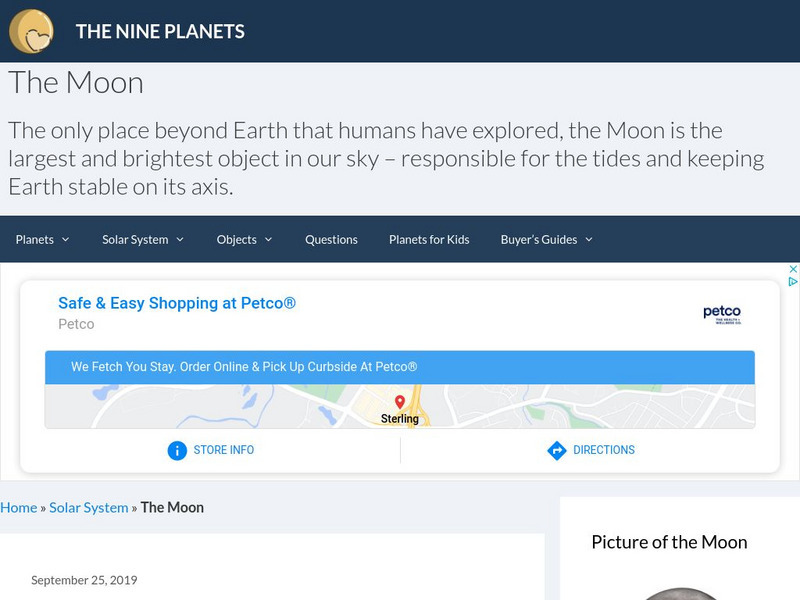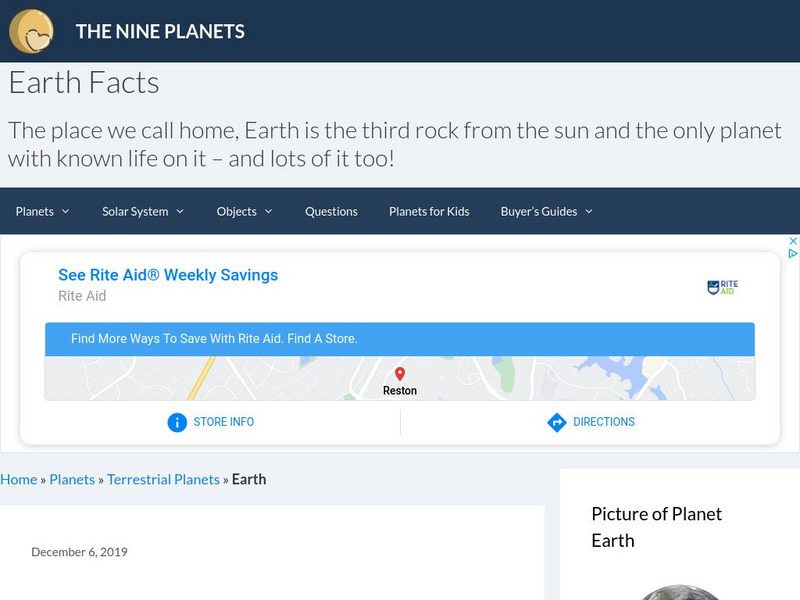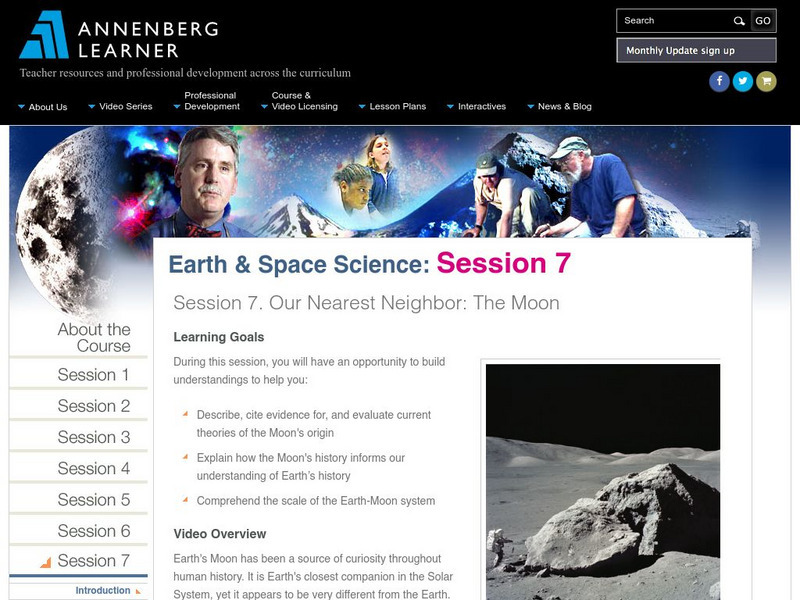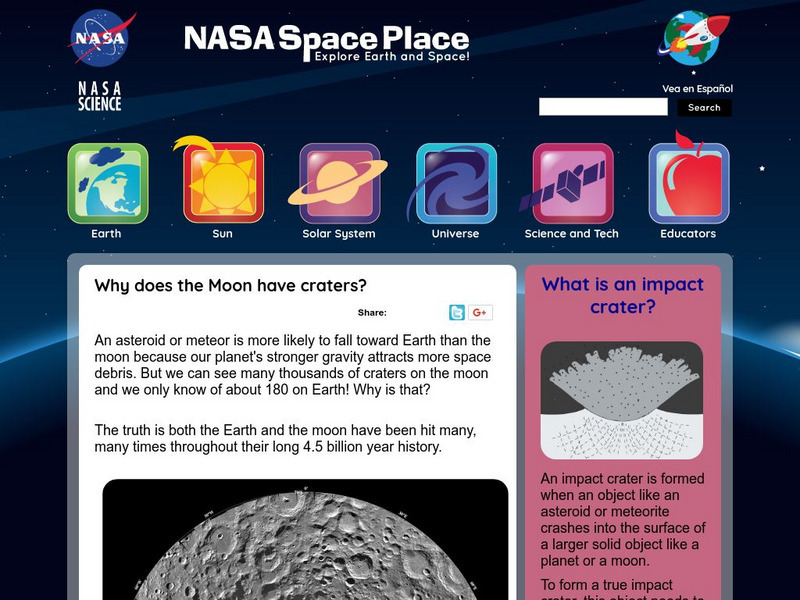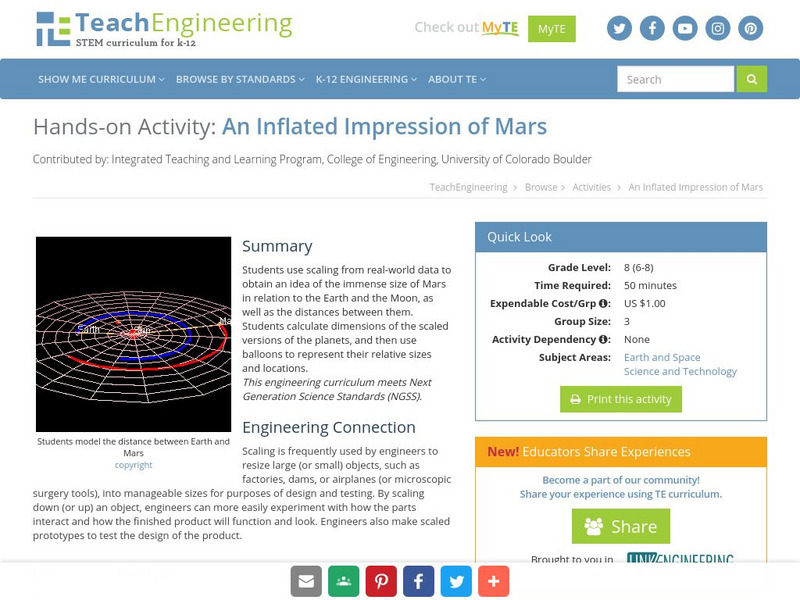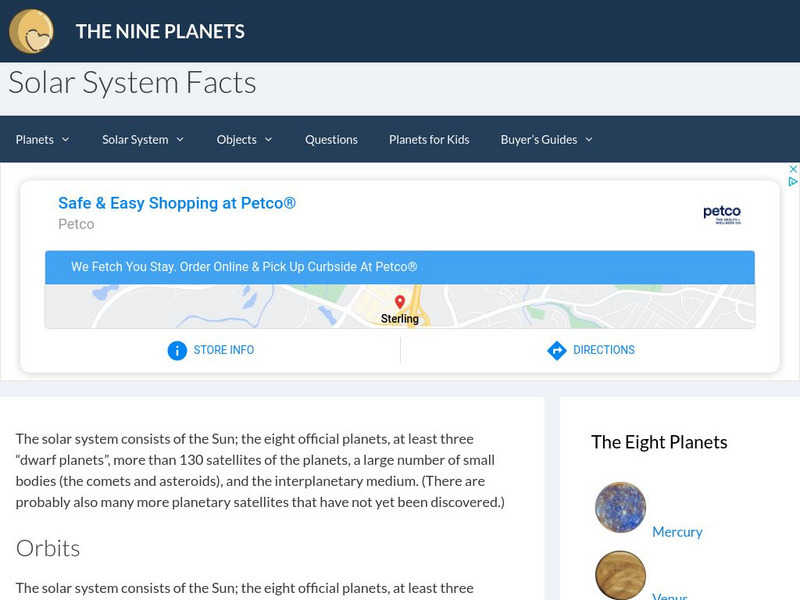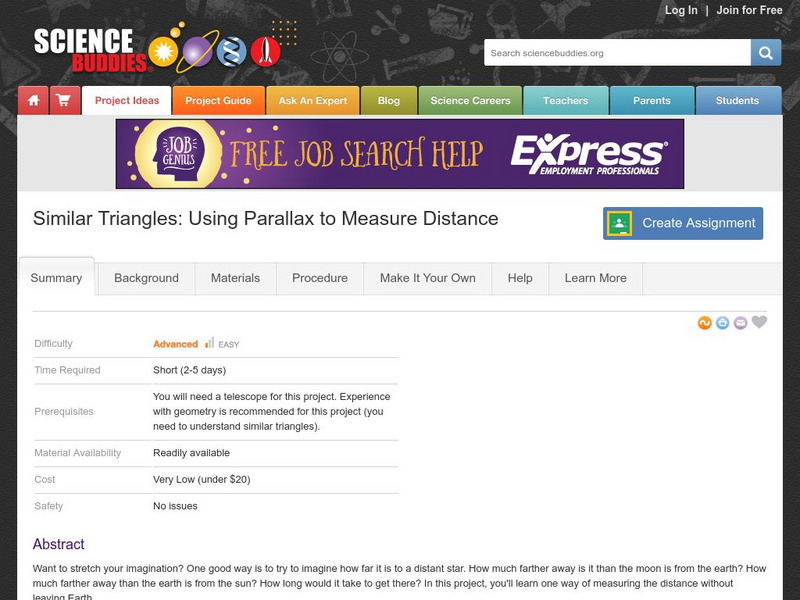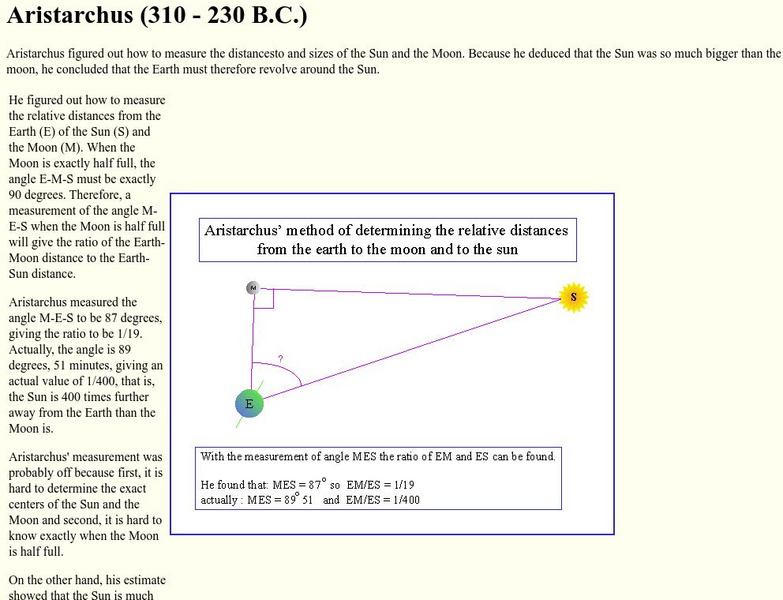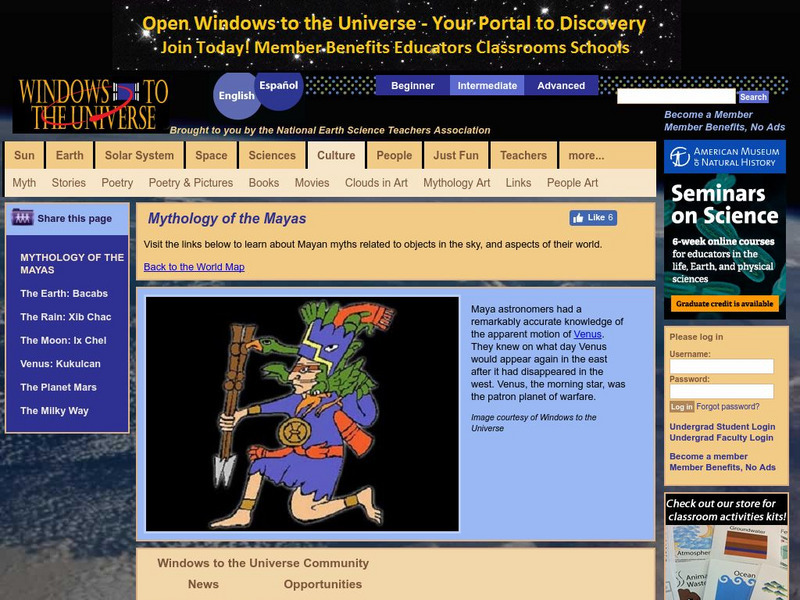Nine Planets
The Nine Planets: The Moon
Explore the mythology, structure, observational history, gravitational force, and orbit of Earth's Moon.
PBS
Pbs Learning Media: Epic Earth
This mesmerizing video shows seven views of the earth taken by NASA's camera. Watch the moon cross over the earth, storms in the ocean, and smoke from a wildfire. Included are teaching tips for teachers and background information.
Utah Education Network
Uen: A Moon With a View
Understand the rotation of the earth and the appearance of movement of other bodies in the sky.
Annenberg Foundation
Annenberg Learner: Moon Journal Activity
Students use the process of journaling to make discoveries about the moon. This activity involves having students write observations about the moon in a journal. Using their observations they go to an online resource and choose...
Alabama Learning Exchange
Alex: Sun, Earth, and Moon: Calendar of Events
During this lesson students are going to take a look at moon phases and sunrise-sunset times in order to learn about daylight hours. Students discover that we do not always have the same amount of daylight each day. This lesson is best...
Nine Planets
The Nine Planets: Earth Facts
Find lots of information about our planet Earth here. Covers basic facts, Earth's history, layers of the Earth, plate tectonics, composition of the atmosphere, Earth's magnetic field, and some facts about our moon.
Nine Planets
The Eight Planets: Earth
Excellent Eight Planets site that provides a vast amount of information about planet Earth. Very comprehensive and complete site.
University of Texas at Austin
The University of Texas Mc Donald Observatory: Earth's Moon
Discover interesting facts about Earth's partner, the moon, which is more like a double planet than a planet and a moon.
Extreme Science
Extreme Science: The Moon
Read about the birth of Earth's moon, its composition, orbit, visible phases, and other interesting facts. Link to a virtual moon phase interactive which shows the current lunar phase and the phase on any date in the past or future.
Utah Education Network
Uen: The Earth Is Flat
Activity helps students understand that the shape of the earth and the moon are spherical.
Annenberg Foundation
Annenberg Learner: Earth and Space Science: Our Nearest Neighbor: The Moon
Material to begin an exploration of the Moon, theories about its origin, and its history's relationship to our Earth's history. An hour-long video is accompanied by learning goals, an outline and overview, details on the Moon's movement,...
NASA
Nasa: Space Place: Why Is the Moon So Scarred With Craters?
Find out about why Earth's moon is full of craters, and what happens to asteroids and meteors when they come into contact with Earth.
TeachEngineering
Teach Engineering: An Inflated Impression of Mars
The purpose of this activity is to use scaling in order to give students an idea of the size of Mars in relation to the Earth and the Moon as well as the distance between them. The students will have to calculate dimensions of the scaled...
Ducksters
Ducksters: Earth Science for Kids: Ocean Tides
Did you know the rising and falling of the sea level is caused by the gravity of the Moon and the Sun? Kids learn about ocean tides including tidal currents and types of tides on this site.
Harvard University
Chandra X Ray Observatory: Video Podcasts: The Incredible Two Inch Universe
A set of podcasts outlining a four-step process for understanding the vastness of our universe, from the vicinity of the Earth and Moon, out into distant galaxies. Downloadable instructions and a handout are included, as well as...
NASA
Nasa: Solar System Exploration
Enter our solar system to interact with the planets, moons, asteroids, meteors, and more. Investigate with NASA scientists and explore missions related to space exploration. Read facts, compare statistics, look through resources, and...
Annenberg Foundation
Annenberg Learner: Teachers' Lab: A Private Universe
This section is dedicated to educators to become expert instructors on topics like: distance between Earth, the Sun, and the moon, the phases of the moon, and reason for the seasons. Site includes information about how to address...
TeachEngineering
Teach Engineering: Lunar Lollipops
The students work in teams of two to discover the relative positions of the Earth, Sun and Moon that produce the different phases of the Moon. The students will be given a Styrofoam ball that they will attach to a pencil so that it looks...
Nine Planets
The Nine Planets: An Overview of the Solar System
A detailed overview of the history, mythology, and current scientific knowledge of each of the planets and moons in the solar system.
National High Magnetic Field Laboratory
Magnet Academy: Magnetometer 1832
The Earth, the moon, the stars and just about everything in between has a magnetic field, and scientists use magnetometers when they need to know the strength of those fields.
Science Buddies
Science Buddies: Similar Triangles: Using Parallax to Measure Distance
Want to stretch your imagination? One good way is to try to imagine how far it is to a distant star. How much farther away is it than the moon is from the earth? In this project, you'll learn one way of measuring the distance without...
Cornell University
Cornell University: Astronomy: Aristarchus
This site from Cornell University provides a discussion of how Aristarchus arrived at his conclusions of the distance from the Earth to the Sun and Moon. Also has his methods for determining the size of the Moon and the Sun.
National Earth Science Teachers Association
Windows to the Universe: Mythology of the Mayas
This article from the Windows to the Universe gives information on Mayan myths related to the Earth, rain, the Moon, Venus, Mars, and the Milky Way. There are illustrations and explanations of vocabulary. Choose from beginner to advanced...
Council for Economic Education
Econ Ed Link: Destination: Mars
Look up! Can you ever imagine standing on another planet and looking down at earth? We've been to the moon - now lets launch an expedition to Mars. Imagine all the preparation you will have to go through in order to have a safe and...
Other popular searches
- Earth Science Moon Phases
- Earth Moon Sun System
- Moon and Earth Movement
- Sun Earth and Moon
- Moon Earth
- Earth and Moon Relationship
- Compare Earth and Moon
- Sun Moon Earth
- Earth and Moon and Sun
- Earth, Moon and Sun
- Forces Earth and Moon
